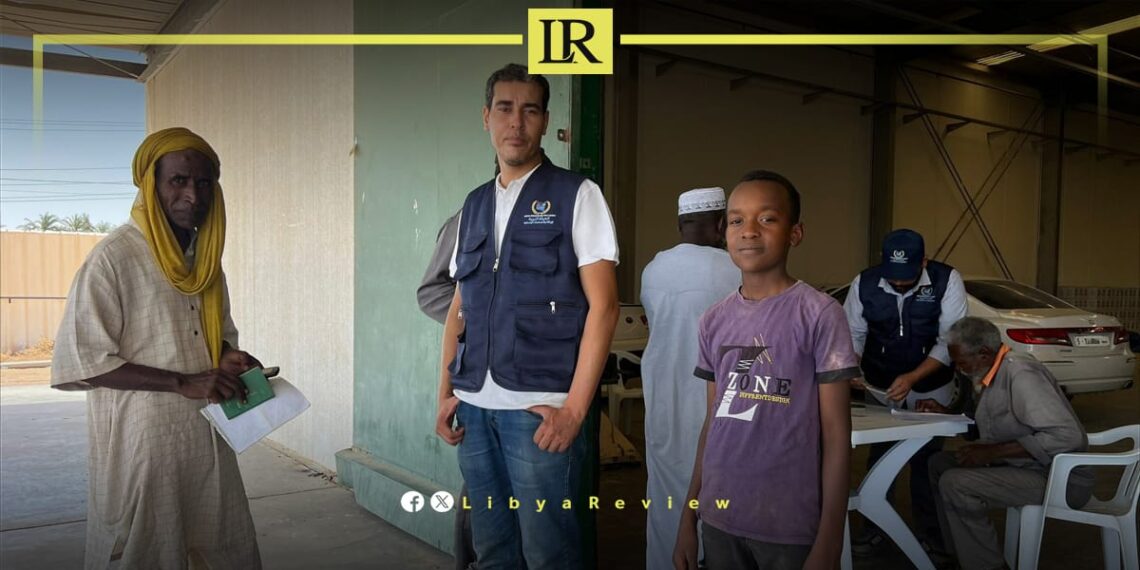The Libyan Relief and Humanitarian Aid Authority is continuing its aid distribution to the Sudanese refugee community residing in the Jufrah Municipality, in coordination with the United Nations High Commissioner for Refugees (UNHCR).
Saeed Bouzreida, Head of the Authority, told the Libyan News Agency that field teams from the Jufrah branch have been actively distributing aid for the third consecutive day. The assistance includes blankets, mattresses, plastic sheets, hygiene kits, cooking utensils, water containers, lamps, and specialized support for the elderly and people with disabilities.
According to Bouzreida, the latest distribution targeted 160 refugee families, totaling 743 individuals, under a carefully phased plan designed to ensure fairness and transparency in aid delivery. He noted that this batch represents the largest delivery of humanitarian assistance to Jufrah to date.
He emphasized the Authority’s ongoing commitment, stating: “We continue our work with dedication to ensure that support reaches everyone in need. Our message is clear — humanitarian and unwavering. We will always stand by those who seek safety and dignity.”
Bouzreida also pointed out that similar distributions are taking place in Abyar, Brega, and Jalu, as part of a broader national relief strategy to support refugees and residents across various Libyan cities and regions.
Libya has been in chaos since a NATO-backed uprising toppled longtime leader Muammar Gaddafi in 2011. The county has for years been split between rival administrations.
Libya’s economy, heavily reliant on oil, has suffered due to the ongoing conflict. The instability has led to fluctuations in oil production and prices, impacting the global oil market and Libya’s economy.
The conflict has led to a significant humanitarian crisis in Libya, with thousands of people killed, and many more displaced. Migrants and refugees using Libya as a transit point to Europe have also faced dire conditions.
The planned elections for December 2021 were delayed due to disagreements over election laws and the eligibility of certain candidates. This delay has raised concerns about the feasibility of a peaceful political transition.
Despite the ceasefire, security remains a significant concern with sporadic fighting and the presence of mercenaries and foreign fighters. The unification of the military and the removal of foreign forces are crucial challenges.


